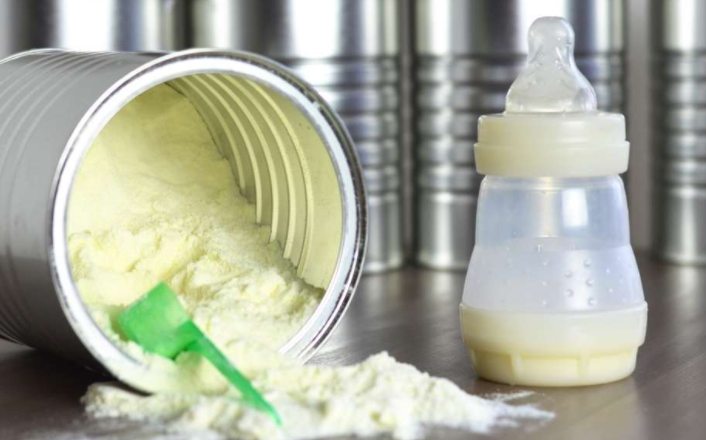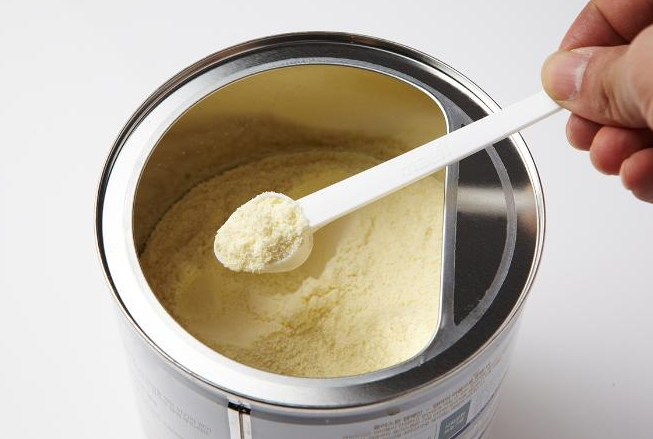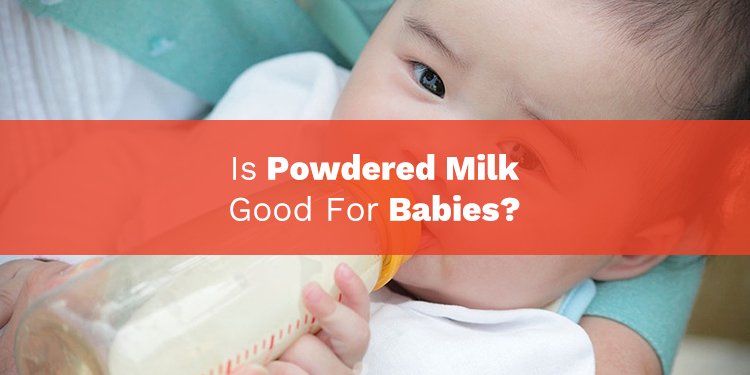After going through pregnancy and painful labor, most mothers worry about the next step. They have to take care of their little ones and make decisions for their health and safety. We understand that it is a scary task to decide what to do next. But you don’t need to worry because we are here to help!
As our cultural norms direct, it is mandatory for mothers to feed their babies breast milk. Experts and pediatricians also advise it. However, there are many factors in association with breastfeeding. Some mothers are not able to produce breast milk due to health issues.

Some women have other obligations that they have to fulfil to take the time away from them on breastfeeding. While some mothers choose to pump their breast milk if their child is not latching on to their nipples, it might not be an option for all mothers. And they might be looking for a breast milk substitute. Powdered milk are best for modern mothers as it aids in modern day parenting.
Whatever the reason might be, there are substitutes available for breast milk to assist new parents. And you might be wondering whether powdered milk is suitable for babies?
What is Powdered Milk?
Powdered milk is also known as dried milk or milk powder. It is a processed dairy product made by evaporating milk to dryness. Powdered milk is drying milk and it preserves the milk.
Due to its low moisture content, milk has a much longer shelf life than liquid milk and does not need to be refrigerated.

Powdered milk is dried milk that has been made by vaporizing the liquid content and leaving a dry powder behind. Commercial powder milk is a complex mixture of proteins, iron, carbohydrates, fats, and vitamins processed in a highly sterile setting.
Though new mothers may choose to make their infant formula, they get advice to use commercial formulas to ensure the baby’s health. After they grow up, parents can choose a toddler formula or toddler milk.
Is Powdered Milk The Same As Baby Formula?
Well, the answer to that is complicated. In some countries, people call powdered milk and infant formula by the same name. Therefore, the only distinguishing fact is the product itself. However, people call baby formula by its name because there are different products called powdered milk.
The concept here is that infant formula is for babies. It has components, added nutrients essential for their growth and development. And powdered milk is a substitute for cow’s milk, especially in tea or coffee.
But again, in some countries, infant formula and powdered milk are synonymous. It can be not very clear for parents. But if you are trying to feed an infant, you should opt for infant formula, and if you have babies without any allergies, you can feed them powdered milk. So parents need to check the labels properly before selecting the infant formula.
Difference Between Powdered Milk And Baby Formula
Powdered Milk
The milk is dried milk that loses all of its water content. This milk has numerous purposes, and the majority of them are due to its longer shelf life.
But people believe that powdered milk has no added nutrients. This is a fundamental difference, but there is powdered milk with other fortified minerals.
Composition
All of the nutrients present in regular liquid milk can also be found in powdered milk. All of this refers to magnesium, zinc, calcium, and essential vitamins (A, D, E, and K).
Also, potassium is added too. And nothing is left out, except for the bacteria, which are not eliminated but rendered obsolete by pasteurization.
Types
Nonfat milk, whole milk are the two types of milk powders. Whereas the majority of the composition of both forms is identical, the milk-fat content differs.
Nonfat milk powder contains less than 1.5 percent milk fat, while whole milk contains 26 to 40 percent milk fat.
Baby Formula
Baby formulas are ideal replacements for breast milk and are available when a mother cannot breastfeed her child. It may result due to a medical condition or the mother’s own decision. Whatever the cause, infant formulas have the task of providing the same nutrients to the baby as mother’s milk.
Composition
Aside from the protein found in cow’s milk, infant formulas are high in vital minerals and vitamins, and nutrients essential to a baby’s health. Some infant formulas contain Omega-3 fatty acids, which help in the growth of the eyes and brain.
Types
Some formulas include soy-based formulas and hydrolyzed infant formulas with cow’s milk-based formula. The most common types of formula is a baby formula based on cow’s milk, fortified with iron.
Furthermore, some parents turn to a soy-based solution for two reasons. They adopt a vegan diet, and cow’s milk is not vegan. Second, some children are unable to digest cow’s milk and, as a result, seek soy-based infant formula for infants.
Hydrolyzed infant formulas are broken down to a molecular level to avoid any reaction, especially the proteins. Furthermore, these formulas help babies who are allergic to both cow and soy-based products.
Benefits of Powdered Milk (Baby Formula)
Easy To Feed
In contrast to breast milk, which you must pump and store adequately before use, infant formula is not such a hassle. Most of us find it daunting and humiliating to breastfeed our children in public.

In this case, infant formulas are great. You can feed your child anywhere. All you need to do is the preparation of the formula for the baby. It does not have to be the mother to feed the milk, it can be done by the father too while you are co-sleeping with your kids. Although breastfeeding babies can be difficult in some areas, it is much easier with powdered milk. Mix it and feed it to the infant.
There are some myths regarding the influence of father and mother on children that breastfeeding will have a bigger influence on the mother on the child. Powdered milk breaks this stereotype and is handy for modern moms as well as fathers or other caretakers taking care of babies.
Fortified Nutrients
Formula milk constitutes all of the nutrients that a newborn needs for growth and development. It also protects the baby from diseases and anemia.
Some infant formulas are fortified with iron, calcium, and vitamins, which are present in breast milk. This aids in the prevention of anemia in infants.
Measurable
When a child has a disease, and his feedings must be tracked, formula milk performs slightly better than breast milk.
No Nipple Discomfort
Breastfeeding causes a lot of nipple soreness and discomfort. New mothers frequently experience nipples, soreness and accidental leaks. Powdered infant milk helps reduce the mother’s distress and pain.
No Restrictions To Mother
Since nutrients from the mother’s diet pass the baby via breast milk, mothers must exercise caution in their dietary intake. Caffeine/alcohol consumption, for example, or the consumption of herbal teas must be limited. Powdered milk frees the new mother from such constraints.
Reduces Pressure On Mother
The risk of disease transmission from mother to baby is high when breastfeeding. Giving powdered milk lowers the risk and ensures the baby’s health. Mothers have a huge responsibility of looking after the child and face criticisms if anything happens to child like health issues or child is lost or if something happens to them.
Yes, it is possible to pump and store breast milk. But what if you experience exhaustion, sickness, and remain out of town? Anyone can easily prepare and feed powdered milk formula.
Risks of Powdered Milk (Baby Formula)
Longer Time To Digest
Unlike commercial powdered milk, which contains synthetic nutrients, breast milk is very easy to digest. Powdered milk can cause your baby to have an upset stomach or other problems such as constipation and gas.
Infant formula contains casein which is more challenging for babies to digest. Due to the presence of this protein, it takes longer for infants to digest powdered milk. It can also strain the digestive system of babies.
May Trigger Allergies
Some infants may have a severe or mild reaction to powdered milk or infant formula. They might be allergic to some components for ingredients that are present or added to the formula.
So parents need to be careful about the formula they are considering purchasing. Parents have to pay attention to the bowel movements of their infant after they consume powdered milk.
If you notice them vomiting or being more cranky than usual, you should stop feeding them the powdered milk and talk to the pediatrician.
Expensive
Breast milk is free of charge, but infant formula must be ordered. They are available in a variety of labels and ages, making selection difficult.
Bottles and nipples cost more money. For daily feeding, parents must purchase good quality and adequate supplies.
Lacks Antibodies
Nothing beats mother’s milk for an infant. Mother’s milk produces antibodies that protect the child by strengthening his immune system. Since powdered milk lacks antibodies, it does not improve the baby’s immune system.
Antibodies occur naturally in breast milk, and commercially purchased infant milk remain deficient in these critical nutrients for a baby’s development. These also put the baby at a higher risk of contracting diseases and becoming ill.
Things To Consider While Buying Powdered Milk For Babies
Since baby formulas come in various ways, selecting the correct one for your baby can be a difficult decision. When selecting infant formula, it is crucial to fulfilling the baby’s nutritional requirements and quality expectations.
Here are four things you should put in consideration while purchasing infant formula for babies:
Nutritional Value
Infants require proteins and carbohydrates and should be administrated with a balanced amount of nutrients as suggested by your pediatrician. The babies who are not breastfed should be given iron-fortified formula before they are one year old because it increases iron levels in their blood, avoiding anemia.

So parents need to be careful and read the labels of the infant formula. The labels state the nutritional content that is present, and it may match what your baby needs.
Financial Status
Before deciding on the type of infant formula you want for your baby, you should think about your financial situation.
Homemade baby formula is the most cost-effective type of formula. If you cannot buy store-bought infant formula, a safe, well-nourished homemade infant formula will fill the gap.
Allergies
Allergies are usually heritable, so your baby is likely to inherit the same allergies that run in your family. In these circumstances, physicians recommend hydrolyzed formula, which is easier to absorb and less likely to cause an allergic reaction in your infant.
Availability
It isn’t advisable to continue using various forms of the baby formula; hence, sticking to a particular one is better. Changing infant formula can disrupt the baby’s digestion and cause allergies. But you also should choose a formula that is accessible.









